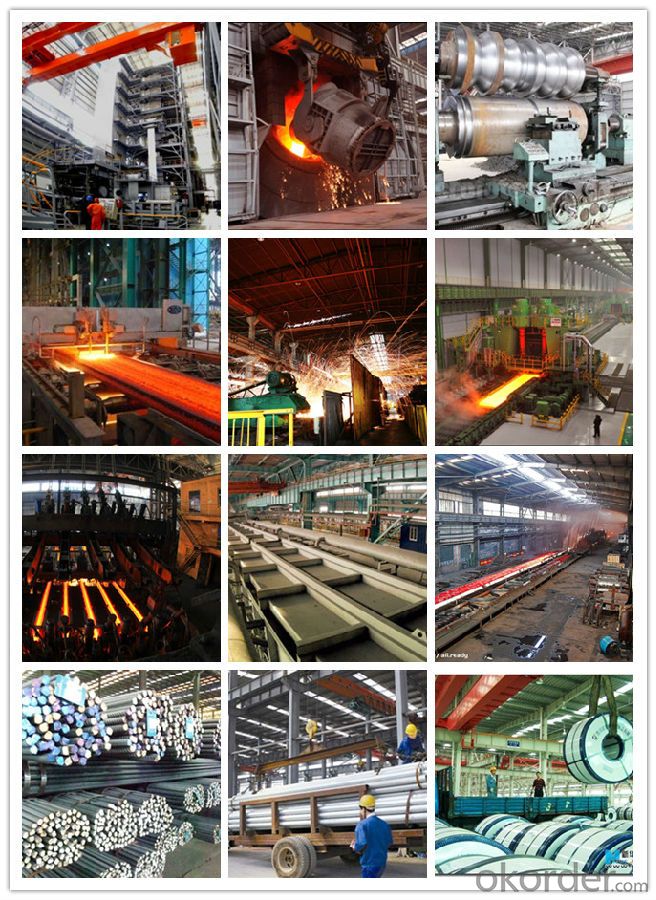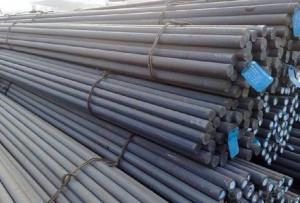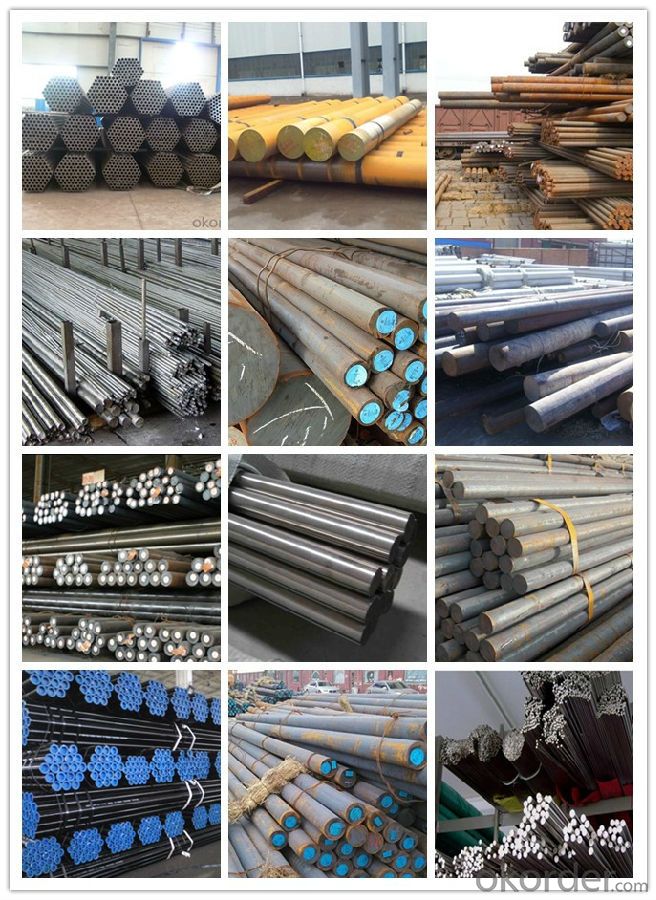Deformed Steel Bar HRB500 Construction Rebar
- Loading Port:
- China main port
- Payment Terms:
- TT OR LC
- Min Order Qty:
- 30 m.t.
- Supply Capability:
- 10000 m.t./month
OKorder Service Pledge
OKorder Financial Service
You Might Also Like
Item specifice
Product information:
| Commodity: | High quality hot rolled ribbed bar, Steel rebar, Deformed bars, Deform rebar |
| Standard & Grade: | GB1499-98 : HRB335,HRB400,HRB500 |
| BS4449-1997 : GR460B,GRB500B | |
| CAN/CSA-G30.18-M92 : 400W | |
| AS/NZS4671-2001 : GR300E, GR500E | |
| JIS G3112-2010 : SD345,SD390,SD490 | |
| ASTM A615 : Gr.40, Gr.60 | |
| DIN488-1984 : BST500 | |
| KS D 3504 : SD400 | |
| Diameter: | 6mm - 50mm |
| Length: | 6m,9m,12m |
| Packing: | Bundle packing |
| Origin: | China |
| Application: | Construction,Road,Machinery processing,Welding fields. |
| Delivery time: | 10-25 days |
| Shipment: | By bulk vessel or Container |
| Documents: | Mill Test Certificate,Commercial Invoice,Packing List,Certificate of Origin |
Product show
Workshop show

Shipping
1. FedEx/DHL/UPS/TNT for samples, Door-to-Door;
2. By Air or by Sea for batch goods, for FCL; Airport/ Port receiving;
3. Customers specifying freight forwarders or negotiable shipping methods!
Delivery Time: 3-7 days for samples; 5-25 days for batch goods.
Payment Terms
1.Payment: T/T, L/C, Western Union, MoneyGram,PayPal; 30% deposits; 70% balance before delivery.
2.MOQ: 1pcs
3.Warranty : 3 years
4.Package Informations: 1) EXPORT, In 20 feet (GW 25 ton) or 40 feet Container (GW 25 ton)
2)as customer's requirement
Why choose us?
(1) The leading exporter in China special steel industry.
(2) Large stocks for various sizes, fast delivery date.
(3) Good business relationship with China famous factories.
(4) More than 7 years steel exporting experience.
(5) Good after-sales service guarantee.
- Q:How does special steel contribute to electrical conductivity?
- Special steel contributes to electrical conductivity by having specific alloying elements, such as chromium, nickel, and manganese, that enhance the material's conductivity properties. These alloying elements improve the steel's ability to carry electrical current by increasing its electron mobility and reducing resistance. Additionally, special steel can be heat-treated to further optimize its electrical conductivity, making it suitable for various electrical applications.
- Q:What are the properties of ultra-high-strength alloy steel?
- Ultra-high-strength alloy steel possesses exceptional strength-to-weight ratio, making it incredibly strong and lightweight. It also exhibits excellent resistance to corrosion, wear, and fatigue, making it suitable for demanding applications. Additionally, this type of steel offers good weldability and machinability, allowing for ease of fabrication and assembly.
- Q:What are the different methods for improving the toughness of tool steels used in special steel?
- Tool steels used in special steel applications can be toughened through various methods. The goal is to increase their resistance to fracture and ability to absorb energy without becoming brittle. Some techniques for improving the toughness of tool steels include: 1. Alloying: Adding specific alloying elements like chromium, molybdenum, vanadium, and tungsten significantly enhances the toughness. These elements form carbides within the steel matrix, improving toughness. 2. Heat treatment: Proper heat treatment greatly improves toughness. Quenching and tempering are commonly used processes. Quenching rapidly cools the steel, resulting in a hardened structure. Tempering involves reheating and slow cooling to relieve internal stresses and increase toughness. 3. Controlled cooling rates: Optimizing toughness is possible by controlling the cooling rate during heat treatment. Slow cooling allows for a more uniform microstructure, leading to improved toughness. 4. Grain refinement: Refining the grain size enhances toughness. This can be achieved through hot working, controlled rolling, or adding grain refining elements like titanium or zirconium. 5. Surface treatments: Shot peening or nitriding can improve toughness. Shot peening bombards the steel surface with small metal or ceramic particles, creating compressive residual stresses that enhance toughness. Nitriding diffuses nitrogen into the surface, forming a hard and wear-resistant layer. 6. Cryogenic treatment: Subjecting the tool steel to extremely low temperatures for an extended period refines the microstructure and reduces residual stresses, improving toughness. 7. Powder metallurgy: Techniques like hot isostatic pressing or sintering can produce tool steels with improved toughness. Fine powder, high pressure, and temperature result in a more uniform and fine-grained microstructure, increasing toughness. Ultimately, the specific methods selected and combined depend on the tool steel's requirements and intended application. By carefully considering these techniques, manufacturers can enhance the toughness of tool steels for demanding special steel applications.
- Q:How is special steel used in the railway supply chain?
- Special steel is used in the railway supply chain for various important purposes. It is primarily utilized in the manufacturing of railway tracks, wheels, and axles due to its exceptional strength, durability, and resistance to wear and tear. Special steel is also employed in the production of railway components such as couplings, springs, and fasteners, ensuring the overall safety and efficiency of the railway system.
- Q:How does special steel contribute to the construction equipment industry?
- The construction equipment industry heavily relies on special steel to ensure the necessary strength, durability, and resistance to wear and tear in their heavy-duty equipment. Extreme conditions, including heavy loads, harsh environments, and constant use, demand the use of special steel alloys that are specifically designed to withstand these challenges and guarantee the equipment's longevity and reliability. One of the major contributions of special steel to the construction equipment industry lies in its impressive strength-to-weight ratio. This characteristic allows manufacturers to design and produce equipment that is both robust and lightweight. Implementing special steel in the construction of crucial equipment components such as chassis, booms, buckets, and blades enhances their load-carrying capacity and overall performance. Additionally, special steel offers exceptional corrosion resistance, which is a significant advantage in construction sites where equipment is exposed to moisture, chemicals, and other corrosive substances. By utilizing corrosion-resistant special steel alloys, manufacturers can extend the lifespan of construction equipment and reduce maintenance costs. Moreover, special steel plays a vital role in providing superior wear resistance. The abrasive materials encountered in construction sites, such as rocks, gravel, and concrete, can cause significant wear on equipment components. Special steel alloys with high hardness and wear resistance properties help minimize wear and prolong the service life of the equipment, reducing the need for frequent replacements and downtime. Furthermore, special steel enables the construction equipment industry to meet specific performance requirements. Various types of special steel alloys can be tailored to meet specific needs, such as impact resistance, high-temperature resistance, or low-temperature toughness. This versatility allows manufacturers to produce equipment that can efficiently operate in diverse conditions, ultimately enhancing the industry's overall productivity. In conclusion, special steel plays a crucial role in the construction equipment industry by providing the necessary strength, durability, resistance to wear and tear, and customization options. By incorporating special steel alloys into their manufacturing processes, equipment manufacturers can produce high-quality machinery that meets the demanding requirements of construction sites, thus improving productivity, safety, and efficiency within the industry.
- Q:Can special steel be used in the furniture manufacturing industry?
- Yes, special steel can be used in the furniture manufacturing industry. Special steel offers various advantages such as strength, durability, and corrosion resistance, making it suitable for producing sturdy and long-lasting furniture pieces. Additionally, special steel can be molded and shaped into various designs, providing flexibility and creativity in furniture manufacturing.
- Q:What is the purpose of cold drawing in special steel production?
- The purpose of cold drawing in special steel production is to enhance the mechanical properties and improve the dimensional accuracy of the steel. Cold drawing involves pulling the steel through a die at room temperature, which increases its tensile strength, hardness, and surface finish. This process also allows for precise control over the final dimensions and shapes of the steel, making it suitable for various specialized applications.
- Q:What are the main factors affecting the hardness of special steel?
- There are several main factors that influence the hardness of special steel. 1. Carbon content: One of the key factors is the carbon content in the steel. Carbon is a hardening element that increases the strength and hardness of the steel. Higher carbon content typically results in higher hardness. 2. Alloying elements: The presence of alloying elements such as chromium, manganese, nickel, and tungsten also affects the hardness of special steel. These elements form various compounds and solid solutions, which can enhance the hardness and strength of the steel. 3. Heat treatment: The heat treatment process, which involves heating and cooling the steel, significantly impacts its hardness. Quenching, a rapid cooling process, can increase the hardness by transforming the steel's microstructure. Tempering, on the other hand, can reduce hardness while improving toughness. 4. Crystal structure: The crystal structure of the steel can influence its hardness. For example, martensite, a hard and brittle structure formed during quenching, provides high hardness. Other crystal structures like ferrite or pearlite may have lower hardness. 5. Grain size: The size of the grains in the steel's microstructure can affect its hardness. Smaller grain sizes generally result in higher hardness due to improved strength and reduced dislocation movement within the material. 6. Work hardening: The process of plastic deformation, such as rolling or forging, can increase the hardness of steel. This work hardening occurs as dislocations in the crystal lattice get trapped and hinder further dislocation movement, resulting in increased hardness. 7. Impurities and inclusions: The presence of impurities or non-metallic inclusions in the steel can affect its hardness. These impurities can act as stress concentrators and reduce the hardness of the material. It is important to consider these factors and carefully control them during the manufacturing process of special steel to achieve the desired hardness for specific applications.
- Q:How does special steel perform in automotive applications?
- Due to its outstanding performance characteristics, special steel is frequently utilized in automotive applications. It boasts superior strength, durability, and resistance to wear and corrosion, making it an ideal option for a wide range of automotive components. In terms of strength, special steel surpasses regular steel with its higher tensile strength, enabling it to withstand heavy loads and impacts. This strength is crucial in automotive applications where components must endure extreme forces while maintaining their structural integrity. Additionally, special steel displays excellent fatigue resistance, ensuring longevity and reliability even in demanding conditions. Furthermore, special steel's exceptional durability allows it to withstand harsh environments, including extreme temperatures, chemicals, and moisture. This durability assists automotive components in maintaining their functionality and performance over an extended period. Another significant advantage of special steel in automotive applications lies in its resistance to wear and corrosion. Automotive components are constantly exposed to friction, abrasion, and corrosive substances. Special steel's high wear resistance allows these components to endure prolonged use without experiencing significant degradation. Moreover, its corrosion resistance protects against rust and other forms of deterioration, preventing premature component failure. Additionally, special steel can be easily shaped and formed into intricate designs, empowering automotive manufacturers to create complex components with precise specifications. The versatility and formability of special steel make it an excellent choice for various automotive applications, including engine parts, suspension systems, chassis components, and exhaust systems. Overall, special steel's exceptional strength, durability, resistance to wear and corrosion, and versatility contribute to its status as a highly sought-after material for automotive applications. Its performance characteristics enhance safety, reliability, and efficiency in vehicles, establishing special steel as an integral part of the automotive industry.
- Q:How does special steel contribute to the renewable energy conversion efficiency?
- Special steel plays a crucial role in improving the renewable energy conversion efficiency by offering enhanced mechanical properties, corrosion resistance, and temperature resistance. It is used in the manufacturing of various renewable energy components such as wind turbine blades, solar panels, and hydroelectric power systems. The strength and durability of special steel ensure that these components can withstand harsh environmental conditions, resulting in increased efficiency, reliability, and lifespan. Additionally, special steel's high thermal conductivity allows for efficient heat transfer in concentrated solar power plants, further optimizing energy conversion.
1. Manufacturer Overview |
|
|---|---|
| Location | |
| Year Established | |
| Annual Output Value | |
| Main Markets | |
| Company Certifications | |
2. Manufacturer Certificates |
|
|---|---|
| a) Certification Name | |
| Range | |
| Reference | |
| Validity Period | |
3. Manufacturer Capability |
|
|---|---|
| a)Trade Capacity | |
| Nearest Port | |
| Export Percentage | |
| No.of Employees in Trade Department | |
| Language Spoken: | |
| b)Factory Information | |
| Factory Size: | |
| No. of Production Lines | |
| Contract Manufacturing | |
| Product Price Range | |
Send your message to us
Deformed Steel Bar HRB500 Construction Rebar
- Loading Port:
- China main port
- Payment Terms:
- TT OR LC
- Min Order Qty:
- 30 m.t.
- Supply Capability:
- 10000 m.t./month
OKorder Service Pledge
OKorder Financial Service
Similar products
New products
Hot products
Related keywords































